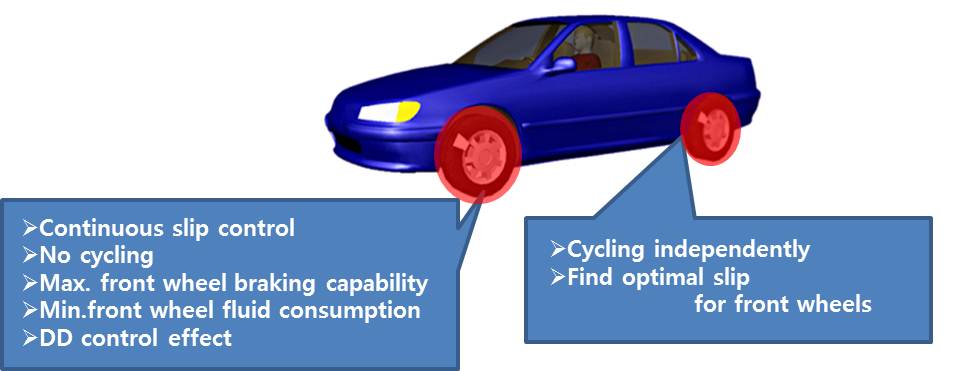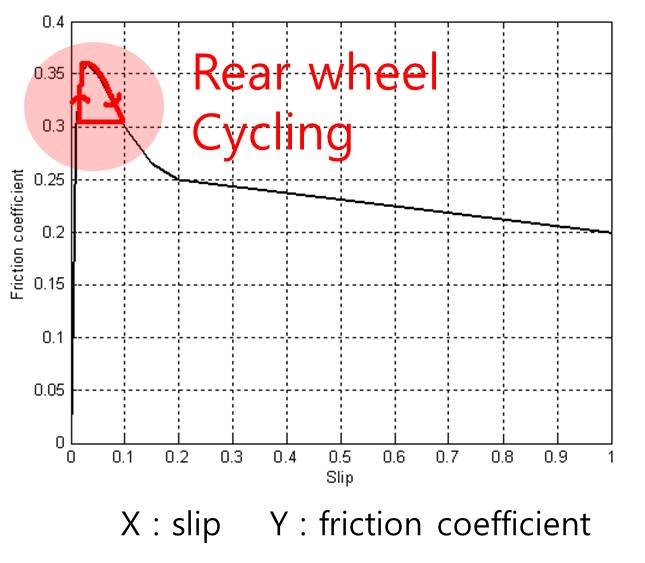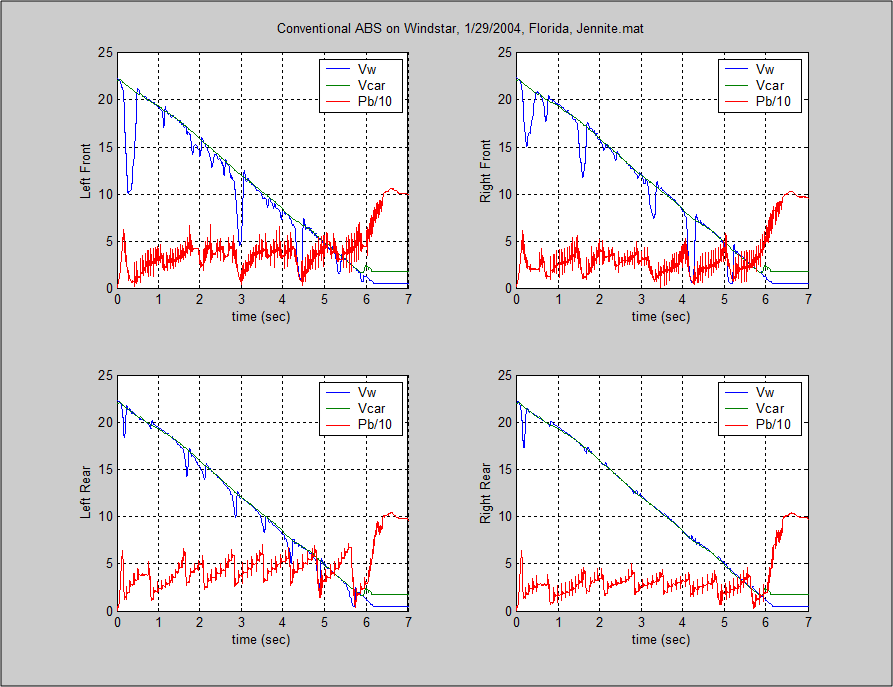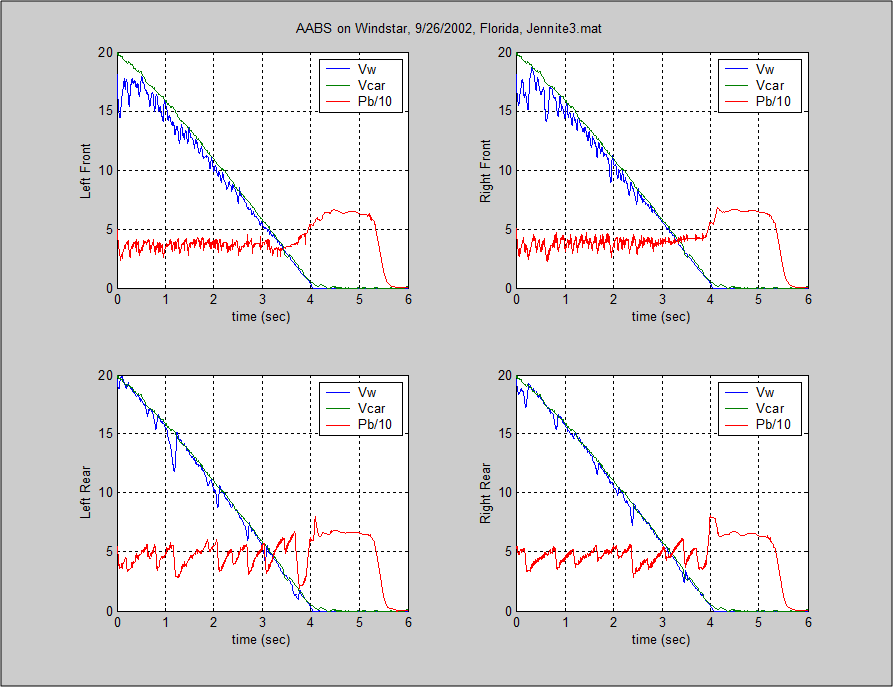Advanced ABS
- Conventional ABS
- Tuning is very time consuming
- NVH, excessive fluid consumtion
- Mu transition detection can be slow
- Combining with ESP can be difficult
- Robustness: closed-loop vs semi-open-loop control
- Brake pedal pumping is not allowed
- New ABS Algorithm
- Continuous feedback control algorithm
- Reduced tuning time (2 years -> 1 week)
- Reduced tuning parameters (600 -> 10)
- Stopping distance reduction: 7% on high mu, 40$ on low mu
- Flow rate variance reduction: up to 85%
- Basic concept
- Two bicycles model concept
- Front wheel control
- Continuous slip control without cycling
- Max. front wheel braking capability
- Min.front wheel fluid consumption
- DD control effect
- Rear wheel control
- Cycling independently
- Find optimal slip for front wheels
Publications
- Seibum B. Choi, "Adaptive Speed Control of a Sensorless Permanent Magnet DC Motor for Anti-lock Brake Systems", International Journal of Automotive Technology, 2010 (acccepted).
- Seibum B. Choi, “Antilock Brake System With a Continuous Wheel Slip Control to Maximize the Braking Performance and the Ride Quality“, IEEE Transaction on Control Systems Technology, Vol.16, No.5, September 2008.




